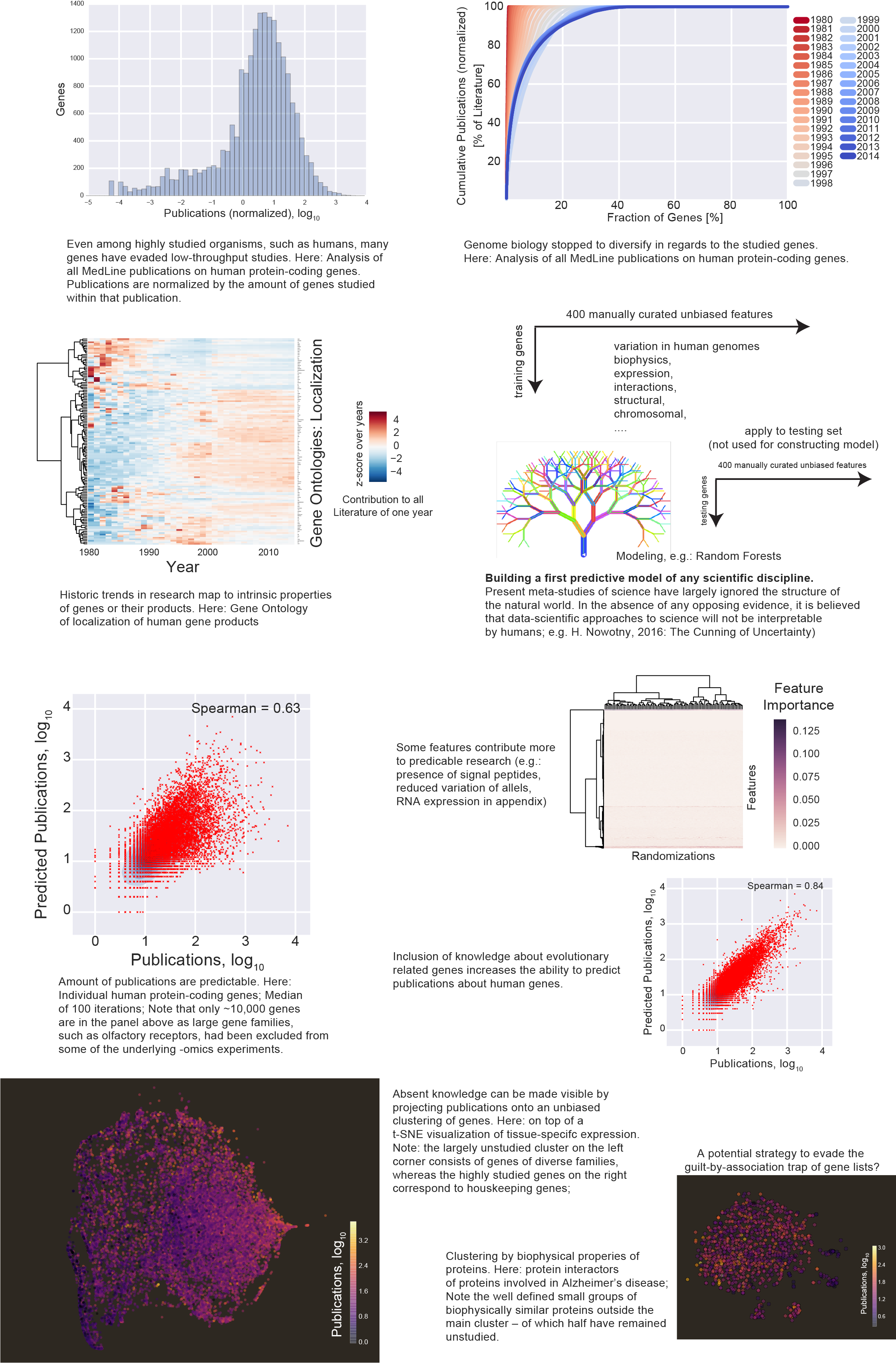Presenting Author:
Thomas Stoeger, Ph.D.
Principal Investigator:
Luis Amaral, Ph.D.
Department:
McCormick
Keywords:
genome biology, bias in research, interpretation of gene-centric knowledge, -omics, predictive modeling, data science, s... [Read full text]
Location:
Third Floor, Feinberg Pavilion, Northwestern Memorial Hospital
B23 - Basic Science
Reconstructing genome biology
Why do genome biologists know what they know? Is it just curiosity, serendipity, and medical relevance – or is there something else? While parts of medicine are moving towards gene-based research and intervention, the foundations of our knowledge about genes have remained largely obscure. Without a complete understanding of the formation of knowledge we cannot distinguish missed research opportunities from biology that can be overlooked. Nor can be clearly separate the perception of relevance from the results of biases within basic research. I attempt to close this gap by reconstructing the formation of genomic knowledge during the last three decades and by building models that predict the amount of publications and annotations for individual genes. We find that following the publication of the first mammalian genomes, genome biology transitioned towards subcellular proteins, and minuscule biological processes, and a continued decrease of impact and growth. Along the same lines, during the last ten years genome biology stopped to diversify, and scientists continue to accumulate explicit knowledge solely about a small set of genes. Irrespective of the year, the majority of publications can be predicted by a series of largely redundant chemical and biological attributes of genes and their products. By superimposing knowledge onto maps of those chemical and biological properties we identify vast territories of uncharted biology. Finally, we will present strategies how individual researchers may be able to reduce the risk of studying something arbitrary upon jumping into the unknown. We believe that such alternative strategies could complement approaches relying on guilt-by-association. We hope that our work can help to counteract the decreasing impact of genome biology by equipping individual researchers with the first predictive reconstruction of any scientific discipline.

